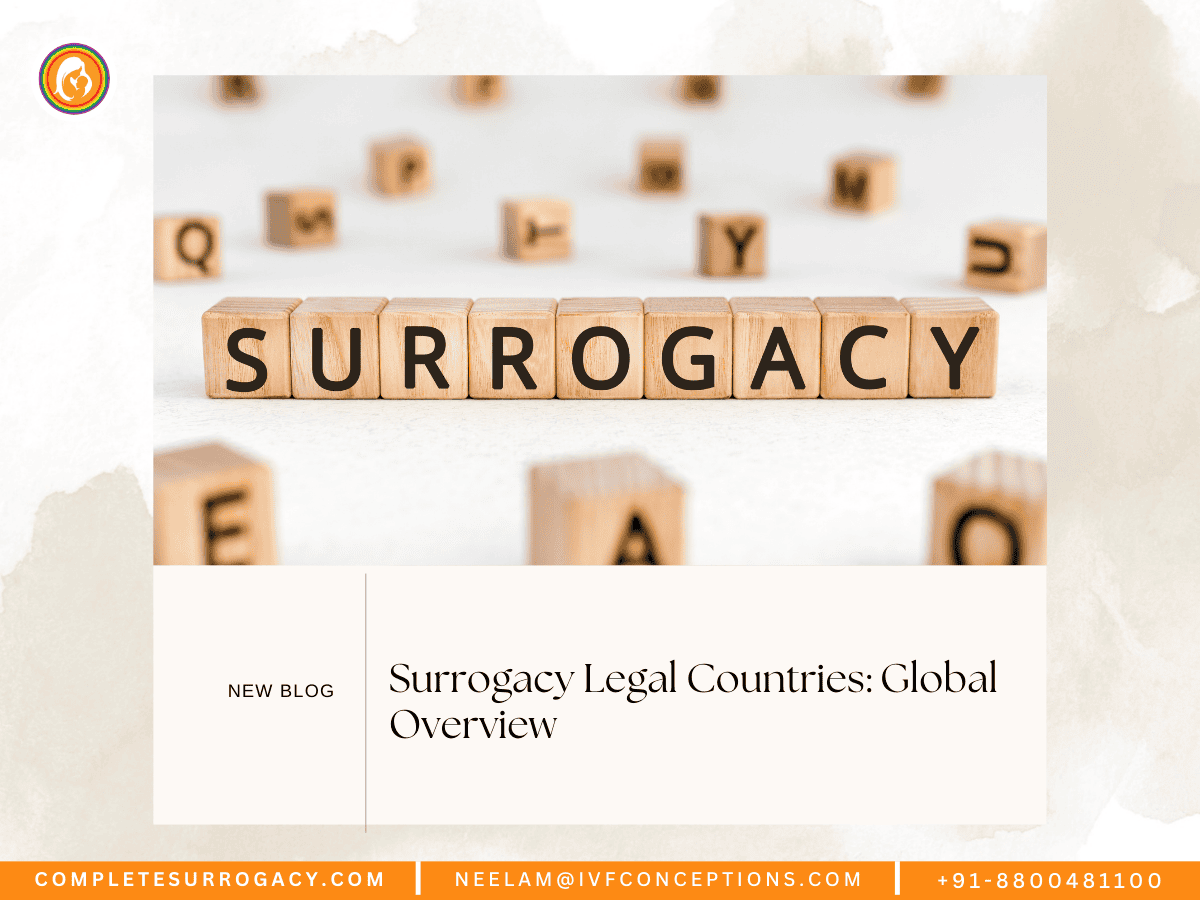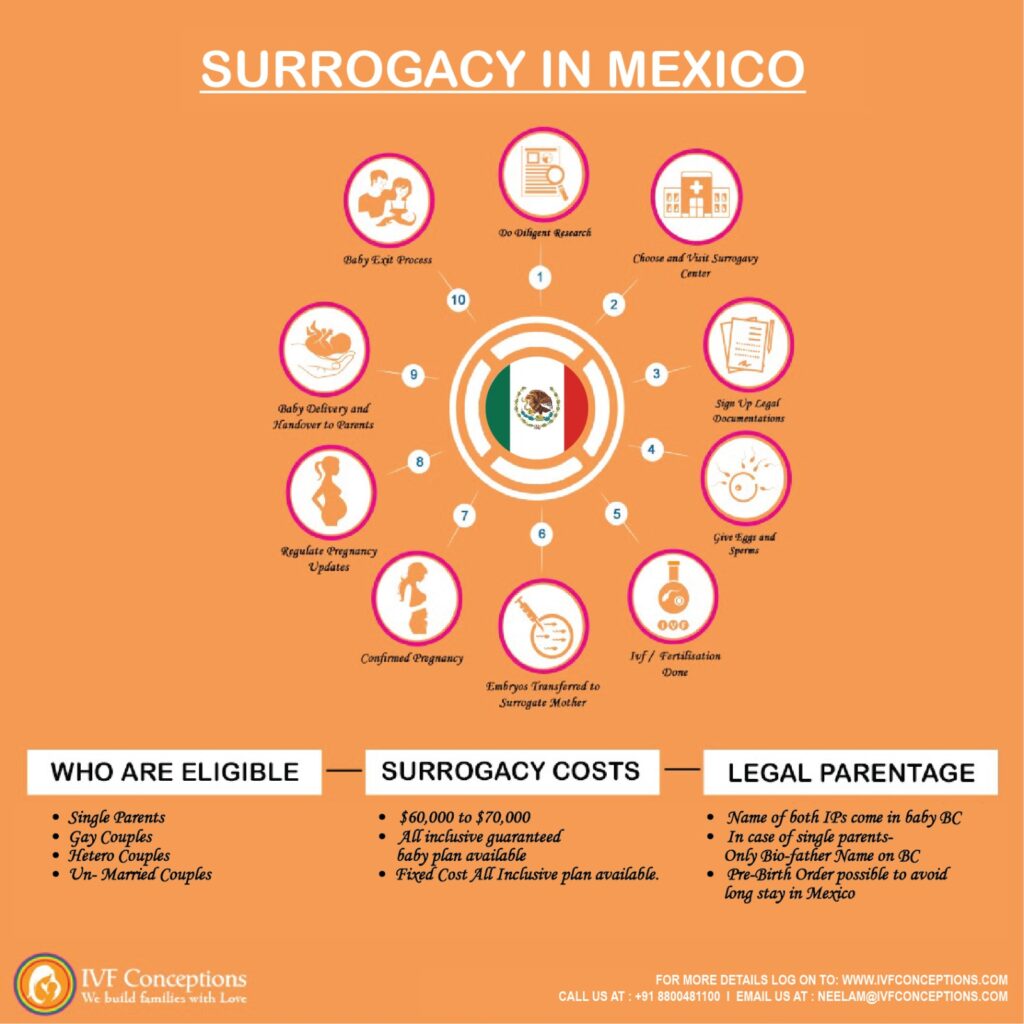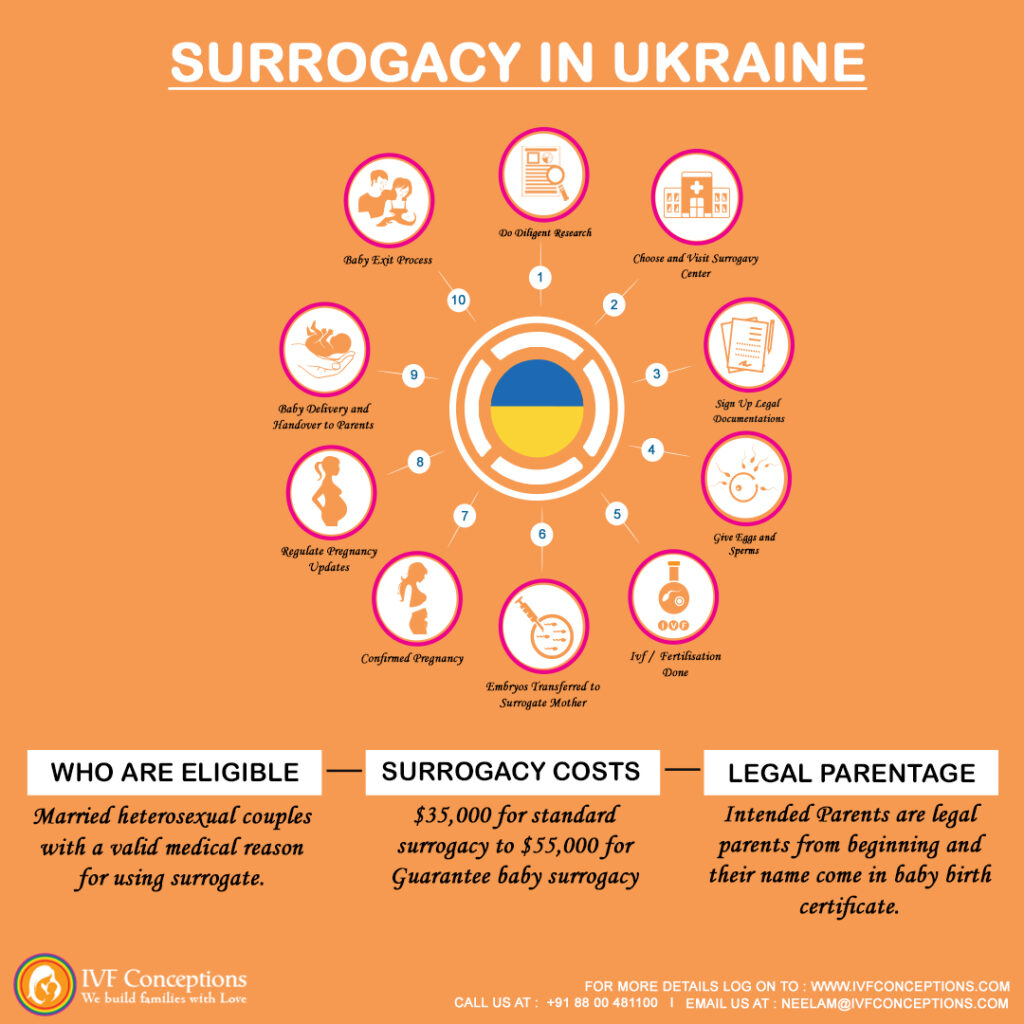Surrogacy Legal Countries: Global Overview

Exploring the world of surrogacy raises a key question: where is surrogacy legal and how do laws affect our choices? The rules on surrogacy vary widely, affecting both intended parents and surrogates. This article delves into the legal aspects of surrogacy globally, from strict rules to more open laws.
Knowing the legal status of surrogacy worldwide is crucial for those thinking about surrogacy. It helps in understanding the options available for surrogacy and the legal requirements in each country.
- Book an online appointment: Get a free online consultation.
- Call\W:+91-8800481100 Email:[email protected]
Let’s explore surrogacy legal countries and how the regulations in these countries can impact your future surrogacy journey to parenthood.
By focusing on international surrogacy laws and the best countries for surrogacy, you can make informed decisions when planning for your family-building process.
Key Takeaways
- In the USA, commercial surrogacy is allowed state-wise, with costs ranging from $150,000 to $200,000.
- Colombia provides altruistic surrogacy at approximately $70,000, with legal protections for all types of couples.
- Ukraine and Georgia permit commercial surrogacy at more affordable costs around $60,000.
- Canada allows altruistic surrogacy but bans commercial surrogacy, limiting compensation to approved expenses.
- Australia prohibits commercial surrogacy but allows altruistic arrangements under specific conditions.
- India allows altruistic surrogacy under certain conditions but prohibits commercial surrogacy.
- Legal and ethical considerations in surrogacy vary significantly from country to country, impacting intended parents and surrogates.
More Resources to Read:
Infertility Treatment and Surrogacy Process
9 Factors To Improve IVF Pregnancy Rate
International Surrogacy Options Worldwide
Surrogacy Guide for Surrogate Mothers
Understanding Surrogacy: Definitions and Types
Surrogacy is a complex practice that involves many ethical, legal, and personal issues. To understand it, we must first look at its definitions. Surrogacy means a woman carries a child for someone else, often for a couple who can’t have kids.
What does Surrogacy mean?
Simply put, surrogacy is when a woman agrees to carry a child for someone else. This helps those who can’t have kids naturally or face pregnancy problems. Knowing what surrogacy is helps us understand its legal and ethical sides. Different places have their own rules about surrogacy, showing the need for clear global laws.

Altruistic vs. Commercial Surrogacy
There are two main types of surrogacy: altruistic and commercial.
- Altruistic surrogacy is when a surrogate carries a child without getting paid, except for medical costs. In places like Australia, this kind of surrogacy is legal and supported.
- Commercial surrogacy lets surrogates get paid for their work. This type is more closely watched by laws and is often debated worldwide. Countries like India and Ukraine allow commercial surrogacy.
It’s important to know the difference between these types. They often decide the laws that apply to each case. While some countries allow both, others ban certain types. This shows how different surrogacy options are for parents around the world.
Here’s a comparison between altruistic surrogacy and commercial surrogacy in a table format:
Comparing Altruistic Surrogacy and Commercial Surrogacy
| Aspect | Altruistic Surrogacy | Commercial Surrogacy |
| Definition | The surrogate receives no financial compensation apart from medical and pregnancy-related expenses. | The surrogate is compensated financially for carrying the child, in addition to covering medical and pregnancy expenses. |
| Surrogate Motivation | Typically driven by altruism, personal connections, or the desire to help others. | Motivated by financial compensation alongside other possible personal reasons. |
| Cost to Intended Parents | Lower overall cost, as there is no surrogate fee beyond medical and legal costs. | Higher overall cost due to the financial compensation provided to the surrogate. |
| Availability | Less common, as it depends on finding surrogates willing to participate without compensation. | More common as the financial incentive attracts more potential surrogates. |
| Legal Status | Legal in more countries, as some nations prohibit commercial surrogacy. | Legal in fewer countries; many nations have restrictions or bans on commercial surrogacy. |
| Emotional Dynamics | Often involves a closer personal relationship due to the non-financial motivations. | Can be more formal and transactional due to the financial compensation involved. |
| Ethical Considerations | Viewed as more ethical in certain regions due to the absence of financial transactions. | Sometimes seen as controversial due to the involvement of financial payments. |
This table provides a clear comparison of altruistic and commercial surrogacy, helping intended parents understand key differences in cost, legality, and ethical aspects.
Comparing Independent Surrogacy and Agency-Assisted Surrogacy
| Aspect | Independent Surrogacy | Agency-Assisted Surrogacy |
| Definition | Intended parents manage the surrogacy process themselves without the help of an agency. | Intended parents work with a surrogacy agency that handles most aspects of the process. |
| Cost | Generally lower, as there are no agency fees, but costs can vary depending on medical and legal services. | Higher, as agency fees (ranging from $10,000 to $30,000) are included. |
| Process Complexity | Requires intended parents to coordinate all aspects, including finding a surrogate, legal paperwork, and medical arrangements. | The agency handles finding a surrogate, legal issues, medical coordination, and more, simplifying the process for intended parents. |
| Time Commitment | More time-consuming, as intended parents must manage all aspects on their own. | Less time-consuming for intended parents, as the agency manages the bulk of the process. |
| Surrogate Matching | Intended parents must find their own surrogate, which can be challenging and time-intensive. | Agencies typically have a database of surrogates and can facilitate faster matching. |
| Legal and Emotional Support | Limited, as intended parents must arrange for legal, counseling, and emotional support services independently. | Agencies provide comprehensive legal, emotional, and logistical support throughout the process. |
| Control Over Process | Provides more control to intended parents over selecting professionals and managing the relationship with the surrogate. | Less direct control, as the agency handles many aspects, but it can reduce the burden on intended parents. |
This table offers a clear comparison of independent and agency-assisted surrogacy, highlighting differences in cost, complexity, and support to help intended parents decide which option suits their needs.
What Countries is Surrogacy Legal?
Surrogacy laws vary worldwide, making it complex for intended parents. Knowing which countries allow surrogacy is key. This section breaks down countries into those with commercial surrogacy and those with altruistic options.
Countries Allowing Commercial Surrogacy
Some countries welcome commercial surrogacy, attracting many intended parents. These include:
- United States: A leader in surrogacy, many states grant legal parentage without a genetic link.
- Ukraine: Offers gestational surrogacy for married couples, with strict rules.
- Georgia: Has similar laws to Ukraine but sees fewer surrogacy cases.
- Mexico: Allows surrogacy in some states, but only with court approval.

Countries Permitting Altruistic Surrogacy
Other countries only allow altruistic surrogacy, where the surrogate isn’t paid. Key examples are:
- United Kingdom: Focuses on altruism, making commercial surrogacy illegal.
- Canada: Legal for altruistic purposes, offering some protection.
- Australia: Laws vary by state, with some allowing altruistic surrogacy and penalizing commercial.
- Greece: Allows surrogacy for eligible Greek women and some foreign couples, with court decisions on parentage.
- Colombia
- Argentina
- India
Surrogacy Legality Map Overview
The surrogacy legality map shows big differences in surrogacy rights worldwide. Countries like France and Germany ban surrogacy, while others, like Thailand, make it illegal. Knowing where surrogacy is legal is vital for navigating these laws.
The legal landscape of surrogacy affects how intended parents make decisions. With varied rules and practices, choosing surrogacy requires careful thought.
Surrogacy Laws by Country: A Closer Examination
Surrogacy laws vary greatly around the world. They are shaped by culture, law, and ethics. We look at how different countries handle surrogacy, showing the big differences.
Sure, here’s the information on international surrogacy laws organized in a table format:
| Country | Eligibility for Surrogacy | Types of Surrogacy Allowed | Legal Protection for Intended Parents | Accessibility for Foreigners | Advertising for Surrogates |
| Australia | Altruistic surrogacy only | No donor or surrogate matching | Not applicable | Not applicable | Not legal |
| Canada | Altruistic surrogacy only | Not applicable | Not applicable | Altruistic surrogacy allowed | Not applicable |
| Greece | Heterosexual couples, single females | Not applicable | Not applicable | Foreign nationals allowed | Not applicable |
| Georgia | Heterosexual couples (including foreigners) | Compensated surrogacy | Well protected | Foreigners allowed | Not applicable |
| Ukraine | Heterosexual couples (including foreigners) | Compensated surrogacy | Well protected | Foreigners allowed | Not applicable |
| India | Indian citizens only | Commercial surrogacy allowed | Not applicable | Not applicable | Not applicable |
| Israel | Heterosexual Israeli citizens | Altruistic surrogacy only | Not applicable | Not applicable | Not applicable |
| Kenya | Locals and foreigners | Compensated surrogacy | Not legally protected | Not applicable | Not applicable |
| Laos | Foreigners only | Compensated surrogacy | Not legally protected | Foreigners allowed | Not applicable |
| Nigeria | Heterosexual Nigerian citizens | Altruistic and commercial surrogacy | Not applicable | Not applicable | Not applicable |
| South Africa | Heterosexual South African residents | Altruistic surrogacy | Not applicable | Not applicable | Not applicable |
| Thailand | Heterosexual Thai couples | Altruistic surrogacy only | Not applicable | Not applicable | Not applicable |
| UK | Not applicable | Altruistic surrogacy only | Not applicable | Foreigners cannot access | Not legal |
| USA | Gay and heterosexual foreigners | All forms of surrogacy | Well regulated | Foreigners allowed | Not applicable |
Overview of European Union Regulations
The European Union has complex rules on surrogacy. Most countries ban commercial surrogacy, focusing on altruistic ones. This means surrogate mothers get only medical costs covered, not money.
Countries like France, Spain, and Bulgaria have banned all surrogacy. This raises big questions about the rights of parents of surrogacy babies.
Surrogacy in North America: The U.S. and Canada
In the U.S., laws on surrogacy differ by state. California is one of the few places that supports both altruistic and commercial surrogacy. It gives strong legal protection to those who want to be parents.
Canada is stricter. Commercial surrogacy is banned, but altruistic ones are allowed. Surrogate mothers can get back only their medical costs. This makes it hard for hopeful parents.
Surrogacy in Australia and New Zealand
Australia mainly supports altruistic surrogacy. Surrogate mothers help without expecting payment. Commercial surrogacy is illegal, which can lead to serious legal trouble.
New Zealand also focuses on altruistic surrogacy. It aims to protect both surrogate mothers and intended parents.
Asian Countries: Restrictions and Prohibitions
Asian countries have strict rules on surrogacy. India banned commercial surrogacy in 2021. The market, once popular with international clients, now only allows charitable surrogacy under tight rules.
Thailand banned commercial surrogacy for foreigners after the “baby Gammy incident.” Nepal and Japan also have bans. These laws make it hard for people to find surrogacy options.
Knowing about international surrogacy law is key. It helps people understand the legal world of surrogacy, making it easier to choose parenthood.
Cheapest countries for surrogacy:
| Country | Regulation & Organization | Who are allowed to participate | Surrogacy Cost | Legal Assurance |
| Colombia | Altruistic | Singles, gay couples, hetero couples | Affordable$70,000 | Reliable |
| Mexico | Altruistic | Singles, gay couples, hetero couples | Affordable$70,000 to $80,000 | Reliable |
| USA | Commercial | Singles, gay couples, hetero couples | Costly$150,000+ | Strong |
| Ukraine | Commercial | Hetero couples | Affordable$60,000 | Strong |
| Georgia | Commercial | Hetero couples | Affordable$60,000 | Strong |
| Greece | Altruistic | Hetero couples and single women | Affordable$80,000 | Strong |
International Surrogacy Countries: Global Overview
Surrogacy is available in many countries around the world. When looking for the best places, we must think about laws, culture, and support for parents and surrogates.
Surrogacy in Mexico
Mexico is a popular choice for surrogacy. Its laws are more relaxed, making it cheaper for parents. Places like Tabasco and Sinaloa allow commercial surrogacy, drawing people from everywhere. The mix of flexibility and cost makes Mexico appealing.

Surrogacy in Argentina
Argentina is becoming a top choice for surrogacy. It has a supportive legal system. While altruistic surrogacy is okay, commercial ones face challenges. Yet, the focus on ethics and community support makes it attractive.
Surrogacy in Colombia
Colombia is a mixed bag for surrogacy. Its laws are unclear, causing uncertainty. Still, many families choose it, hoping clinics and professionals will help them.
Surrogacy in Georgia
Georgia was once a top pick for surrogacy. It has strong laws for foreign parents. But, new plans might change its status in international surrogacy.
Surrogacy in Ukraine
Ukraine is known for its surrogacy options. It has clear laws and is affordable. It’s a favorite for UK parents looking abroad. The rules protect everyone involved, making it a good choice.

Surrogacy in India
India used to be a big player in surrogacy. But, a 2021 law changed things. Now, it mainly offers altruistic options, but with limits.
Surrogacy in Armenia
Armenia is becoming more popular for surrogacy. It allows commercial surrogacy, though the laws are still developing. This makes it a good option for those looking for a new place.
| Country | Type of Surrogacy | Legal Status | Approximate Cost |
| Mexico | Commercial | Permitted | $25,000 |
| Argentina | Altruistic | Recognized | $30,000 |
| Colombia | Altruistic | Unclear | $40,000 |
| Georgia | Commercial | Permitted (with restrictions) | $30,000 |
| Ukraine | Commercial | Permitted | $40,000 |
| India | Altruistic | Prohibited for foreigners | $25,000 |
| Armenia | Commercial | Under development | $35,000 |
More Resources to Read:
Surrogacy Guide for Surrogate Mothers
Surrogacy Guide for Intended Parents
How does the surrogacy process work
Conclusion
Understanding surrogacy laws around the world is key for those wanting to become parents. Each country has its own rules, affecting the surrogacy process. Countries like Ukraine, Mexico, and Georgia have different laws, showing the need for knowledge.
The world of surrogacy is changing fast, thanks to new laws and shifting views. For example, about 40 percent of surrogacy clients are same-sex couples. This shows how society is becoming more accepting of different families. The market’s size, especially in Ukraine, highlights the need to stay informed about laws.
We suggest that those thinking about surrogacy get help from experts in international surrogacy. This way, we can handle the legal differences between countries better. Knowing the laws is crucial for a successful journey to building a family.
If you’d like to learn more about IVF, Egg Donation, or surrogacy services globally, check out the rest of our website at Complete Surrogacy Agency. We offer legally secure and affordable surrogacy consulting services for FREE.
Complete Surrogacy: Your Trusted Partner in International Surrogacy
At Complete Surrogacy, we have over 15 years of experience in international surrogacy, guiding 4,000+ intended parents worldwide. We provide safe, ethical, and affordable surrogacy solutions for single parents, LGBTQ+ couples, and heterosexual couples.
As members of EFS and ESHRE, we adhere to the highest ethical and professional standards. Our expert team is committed to providing accurate, compassionate, and transparent guidance, ensuring a legally secure and smooth journey to parenthood.
Let us help you build your family with trust, care, and integrity.
Get in touch for one FREE Surrogacy Consultancy!

FAQs for best countries for surrogacy – Global prospective
In what countries is surrogacy legal?
Surrogacy is legal in many countries. The United States, India, Ukraine, and Georgia allow commercial surrogacy. Countries like Canada, Brazil, and the United Kingdom only allow altruistic surrogacy.
What is the difference between altruistic and commercial surrogacy?
Altruistic surrogacy means the surrogate gets paid for expenses but not extra money. Commercial surrogacy lets surrogates get paid for their work. These differences shape the laws in different places.
How do surrogacy laws vary by region?
Surrogacy laws change a lot by region. For example, the European Union bans commercial surrogacy. In North America, U.S. states have their own rules. Some Asian countries have strict rules or bans on surrogacy.
Where can I find a surrogacy legality map?
A surrogacy legality map shows where surrogacy is allowed. It highlights big differences in laws and rights for parents and surrogates around the world.
Which countries are considered international surrogacy hotspots?
Countries like Mexico, Colombia, Georgia, and Ukraine are known for their friendly surrogacy laws. India and Armenia are also getting more popular for surrogacy.
What regulations exist for surrogacy in Australia and New Zealand?
Australia and New Zealand mainly follow altruistic surrogacy rules. This means surrogates can’t get paid more than their costs. Laws can vary by state or territory.
How do societal attitudes toward surrogacy affect its legal status?
How people view surrogacy can really affect its laws. As opinions change, governments might update their rules. This can change the rights of parents and surrogates.
What should I consider when pursuing international surrogacy?
Thinking about international surrogacy? You need to know the local laws, ethics, and costs. Getting advice from experts in international surrogacy can help you follow the rules.
Where can I find updates on surrogacy laws?
To keep up with surrogacy law changes, follow legal experts, surrogacy agencies, and groups that focus on reproductive rights. They offer the latest information.
Source Links
- https://www.ivfconceptions.com/countries-where-surrogacy-is-legal/ – Countries where surrogacy is legal (International Surrogacy 2024)
- https://www.ncbi.nlm.nih.gov/pmc/articles/PMC9800153/ – Commercial Surrogacy: An Overview
- https://en.wikipedia.org/wiki/Surrogacy_laws_by_country – Surrogacy laws by country
- https://surrogate.com/intended-parents/surrogacy-laws-and-legal-information/what-are-the-international-surrogacy-laws-by-country/ – International Surrogacy Laws by Country | Surrogate.com

Author Bio: Neelam Chhagani is an International Surrogacy Expert with 15 years of experience in the fertility and surrogacy domain. As the founder of IVF Conceptions and Complete Surrogacy, she has guided over 4,000 intended parents worldwide on their surrogacy journey to parenthood. Recognized as a trusted authority, she specializes in holistic infertility solutions and third-party reproduction consulting.
Holding an MA in Counselling Psychology and a PGD in Mental Health, Neelam is a proud member of the European Fertility Society (EFS) and the European Society of Human Reproduction and Embryology (ESHRE). She is also a leading surrogacy blogger, providing valuable insights into ethical and practical surrogacy solutions.
Since 2010, committed to supporting ALL family types, Neelam has been passionate about helping intended parents grow their families with compassion, integrity, and a focus on secure and affordable surrogacy options Globally.
Learn more about Neelam:
https://www.ivfconceptions.com/neelam-chhagani-surrogacy-consultant/
https://www.linkedin.com/in/neelam-chhagani-92892229/
https://www.quora.com/profile/Neelam-Chhagani















I was introduced to Neelam by a friend who worked with Neelam for surrogacy. Neelam is absolutely wonderful. I am a single male and the journey to fatherhood is not that easy. Neelam connected me to a program ideal for my circumstances. She was with me throughout the pregnancy providing advice and guidance along the way. I am so grateful I found her and am thrilled today that I have a beautiful daughter. I highly recommend Neelam to anyone who is on a journey to become a parent. Having a child has changed my world for the better. I wish others success with their own journey and recommend you connect with Neelam to find a path that is best for you.
SA (USA)